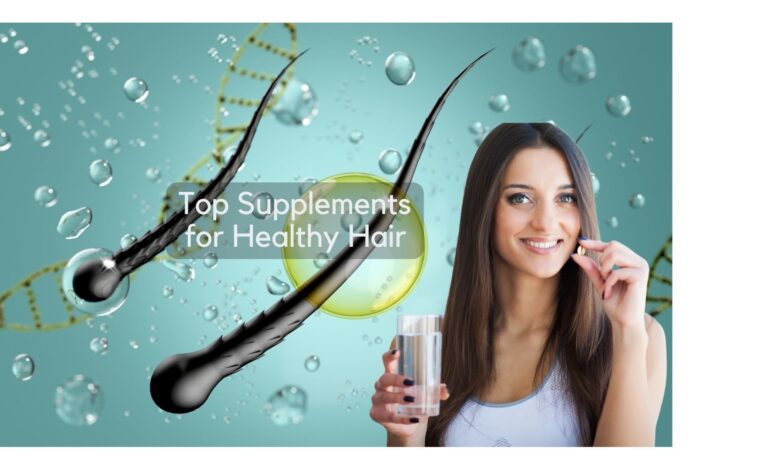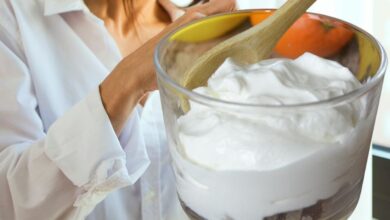Top Supplements for Healthy Hair: Essential Vitamins and Minerals for Hair Growth

Discover the Top Supplements for Healthy Hair growth. Learn about their benefits, sources, recommended intake, and potential risks to achieve stronger, shinier hair. In this article we will discuss best Supplements for Healthy Hair
The Role of Vitamins in Hair Growth
Vitamins are vital nutrients that the body requires for overall health, including hair health. While severe vitamin deficiencies can lead to illness and even hair loss, they are uncommon in most developed countries. Specific groups, such as menstruating women with iron deficiency or individuals with low Vitamin D levels due to insufficient sunlight exposure, may benefit from targeted supplementation. However, excessive intake of certain vitamins can also cause adverse effects, so it’s crucial to adopt a balanced and cost-effective approach to supplementation.
Key Vitamins for Hair Growth best suppliments Supplements for Healthy Hair
1. Biotin (Vitamin B7)
Importance
Biotin supports healthy hair growth, and its deficiency can result in hair thinning. However, biotin deficiency is rare and typically linked to specific conditions, such as biotinidase deficiency.
Natural Sources
Eggs, liver, wheat, oat cereals, vegetables, rice, and dairy products.
Recommended Daily Intake
- Adults: 30 mcg
- Common supplementation dose: Up to 5,000 mcg
Excess Intake Risks
High doses (even up to 100,000 mcg/day) generally pose no toxicity risks but may interfere with lab tests.
2. Vitamin D
Importance
Vitamin D plays a crucial role in hair follicle health and overall physiological functions. Deficiency may impair hair growth.
Natural Sources
Fortified foods like milk, yogurt, orange juice, fatty fish (e.g., salmon, tuna), eggs, and mushrooms.
Recommended Daily Intake
- Adults: 2,000–5,000 IU
- Severe deficiency may require prescription-strength doses.
Excess Intake Risks
Toxic levels (>150 ng/ml) can lead to symptoms such as bone pain, kidney problems, and dehydration.
3. Vitamin A
Importance
Vitamin A supports cell growth and differentiation, including hair follicles. Both deficiency and excess can negatively affect hair health.
Natural Sources
Carrots, sweet potatoes, spinach, liver, eggs, and dairy products.
Recommended Daily Intake
- Men: 900 mcg (3,000 IU)
- Women: 700 mcg (2,333 IU)
Excess Intake Risks
High intake (>10,000 IU/day) may cause symptoms like blurred vision, nausea, and birth defects during pregnancy.
4. Vitamin C
Importance
Essential for collagen synthesis and iron absorption, Vitamin C supports the structural integrity of hair.
Natural Sources
Citrus fruits, tomatoes, bell peppers, broccoli, and strawberries.
Recommended Daily Intake
- Men: 90 mg
- Women: 75 mg
Excess Intake Risks
High doses may lead to gastrointestinal discomfort or kidney stones.
5. Vitamin E
Importance
Vitamin E acts as an antioxidant, reducing oxidative stress that may impact hair health.
Natural Sources
Avocados, almonds, sunflower seeds, and wheat germ oil.
Recommended Daily Intake
- Adults: 15 mg (22.5 IU)
Excess Intake Risks
Toxic levels (>20 times RDA) can cause nausea, fatigue, and blurred vision.
Key Minerals for Hair Growth
1. Iron
Iron deficiency is a common cause of hair loss, especially in women.
Natural Sources
Meat, fish, poultry, leafy greens, and fortified cereals.
Recommended Daily Intake
- Men and postmenopausal women: 8 mg/day
- Premenopausal women: 18 mg/day
Excess Intake Risks
High doses (>45 mg/day) can lead to organ damage.
2. Magnesium
Magnesium supports protein synthesis and normal hair growth.
Natural Sources
Leafy greens, nuts, beans, fish, and dairy products.
Recommended Daily Intake
- Men: 400–420 mg/day
- Women: 310–320 mg/day
Excess Intake Risks
Toxic levels can result in irregular heartbeat and confusion.
3. Zinc
Zinc is vital for hair tissue growth and repair.
Natural Sources
Shellfish, meat, eggs, and legumes.
Recommended Daily Intake
- Men: 11 mg/day
- Women: 8 mg/day
Excess Intake Risks
High intake may cause nausea, vomiting, and headaches.
Conclusion
A well-balanced diet rich in vitamins and minerals is essential for healthy hair growth. While supplementation may be beneficial for individuals with specific deficiencies, excessive intake can have adverse effects. Always consult a healthcare professional before starting any supplementation regimen to achieve the best results for your hair and overall health.



